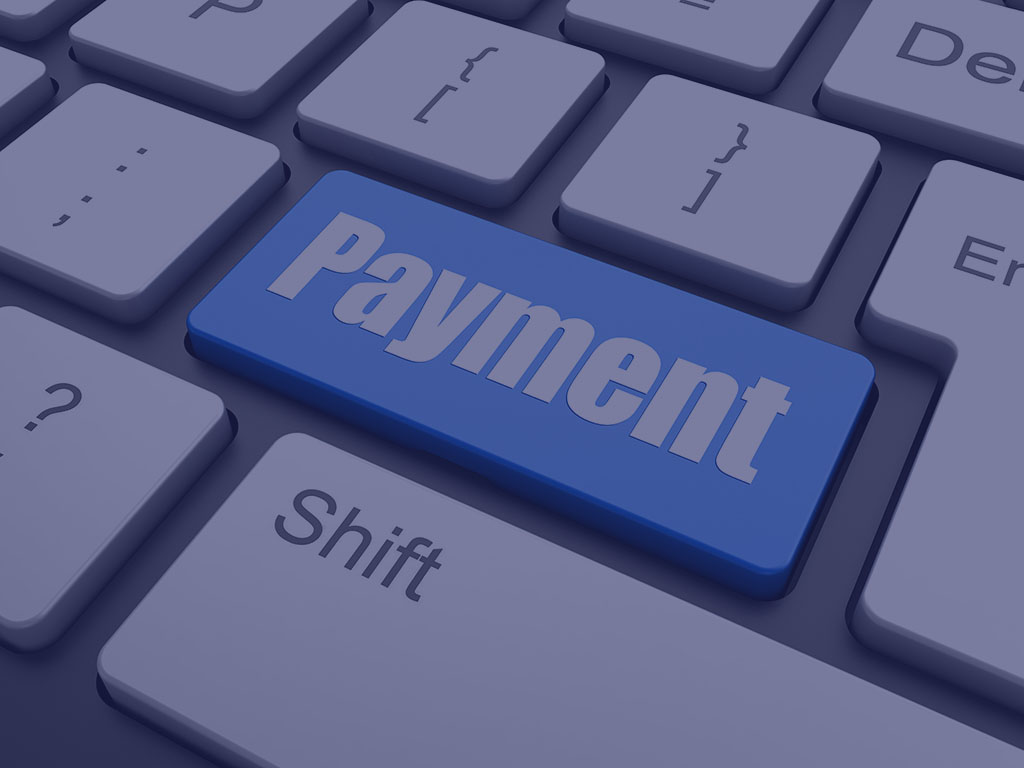Introduction
Credit cards are everywhere and are an essential “lubricant” of any modern economy. Nearly all (if not all) nations of the world will accept some form of credit card payments. The booming internet economy has only been possible because of online payment processing of some type. A staggering amount of money passes through the credit card system – according to the Federal Reserve, nearly $4 trillion dollars were spent by consumers using credit cards in 2018, and the upward trend will definitely continue. Consumers are also more willing to try out a new business with a first purchase, because they realize that credit card purchases (unlike debit card purchases) provide them with certain protections from fraud and provide remedies if purchases are questioned or disputed with the merchant.
The implication for any business, whether they are a brick-and-mortar location or operating online as an eCommerce site, is apparent: the ability to accept credit card payments has become essential to your operation and your business’s financial strength and stability. Also, accepting credit card payments can improve your cash flow.
Consumers are also more willing to try out a new business with a first purchase, because they realize that credit card purchases (unlike debit card purchases) provide them with certain protections from fraud and provide remedies if purchases are questioned or disputed with the merchant.
Credit Card Processing: Understanding the Basics

As a merchant, you need to know that in the U.S. there are 4 major credit card networks: VISA – MasterCard – Discover – American Express. If you want to accept payments, you should work with a trusted credit card processing platform that accepts payments from at least the 4 major networks.
It is also important to get the birds-eye view of all the different types of fees that you will be charged to process customer payments made with a credit card. There are three categories of payments. Unfortunately, 2 of the 3 fee types are non-negotiable. The good news, however, is that the third type is negotiable.
The Three Categories of Credit Card Fees
The non-negotiable (or fixed) fee types are:
• Interchange Fees: These fees are received by the bank that has issued the consumer their credit card (issuing bank).
• Assessment Fees: These fees are received by the network that the payment is placed through.
The negotiable fee type is:
• Payment Processor Fees: These are fees charged to you, the merchant, by the processor you choose to handle your transactions.
Let’s use an example — Suppose you accept a credit card payment from Sue Smith. Sue uses a MasterCard issued by her bank, the XYZ Bank. You, as the merchant, are using the Mighty-Fine CC Processing Co. to process all your credit card purchases.
In the example above, the bank that Sue got her card from (XYZ Bank) will receive the interchange fee.
The card Sue is using is a MasterCard, so the MC network will receive the assessment fee.
Finally, as you are using the Mighty-Fine CC Processing Co. to process your payments, they will be paid the payment processing fee for each transaction that they handle. The payment processor sends the payment request through the credit card financial network (rails) to complete the transaction.
A final wrinkle: the Discover and AMEX (American Express) networks are not just networks – they also issue those cards as a stand-alone financial institution (just like a bank issues a VISA card for their account holders). This means that for both Discover and AMEX, they collect both the interchange and assessment fee for each transaction.
Credit Card Payment Processors: What Do They Do? How Do They Charge You?

Your payment processor can supply you with physical card readers (think brick-and-mortar shops and restaurants), or an online payment solution for service-based and eCommerce sites. If you are accepting payments from outside your own country, your payment processing company may have options to allow you to access other CC systems to get those payments as well. Of course, there will be a cost to you to use any equipment they provide, unless you make arrangements to purchase the hardware outright.
In addition, payment processors typical charge a monthly fee, a percentage-based fee per transaction, and a flat per-transaction fee. There are many variations and plans available. A plan that is good for one company may not be good for another, so you should be prepared to do some investigating to determine what options are best for your organization’s unique needs.
Changes in Credit Card Processing Fees for 2021 and Beyond
If you are – or are planning on – accepting credit card payments for your business, it is best to keep up-to-date with your network mailings and notices. This is because the credit card networks update their schedule of fees quarterly, in January, April, July and October of each year.
Because the network fees (like fees charged by the card-issuing bank) are not adjustable, one primary way to manage your credit card payment processing costs is to carefully choose which card networks you are willing to work with. For example, fewer merchants accept payments from American Express, which according to the Motley Fool has been the most expensive payment network to use. In 2018, AMEX lowered their fees so that they were more in line with the other networks, but continued to be higher in comparison.
There are 3 approaches used by credit card processing companies who offer ePayment services:
Tiered Pricing Option: There are various levels of transaction pricing which are fixed. In the schedules, they are sometimes referred to as “Qualified”, “Mid-Qualified”, and “Non-Qualified.” The best rates are at the Qualified level – however because each processor determines which transaction is a Qualified transaction and which is not, it is difficult to make comparisons across providers.
Fixed Pricing Option: This is a simplified option. You pay a percentage and a small per-transaction fee for each payment they handle. Providers such as PayPal, Square, Stripe, and others use a variation of this approach. The pricing structure is simple and uncomplicated, making it a first choice for smaller businesses who are just entering the world of credit/debit card payment acceptance. Your business however, will pay higher processing costs overall because you aren’t able to benefit from the lower processing fees that come with accepting personal credit cards and debit cards.
Interchange-Plus – Cost-Plus: With this option, your business will be charged the actual interchange cost – plus – an additional markup from your payment processor. As interchange fees do not vary for the same network, the only variable is the processor markup, this allowing for comparison among processors. This will allow you to choose the one that saves you the most money, and provides the best services at the lowest possible net cost for your business.
Factors Affecting Your Interchange Fees

A lot of detail is provided by payment networks to help you understand their fee structure. For example, this extract from VISA shows more about the interchange fees for 2020. But all of these details can be overwhelming.
To make it easier, this little calculation can help you get a very clear picture of what your real expenses are for accepting credit cards:
- Determine your total monthly payout for fees
- Determine your total monthly sales
- Divide fees/sales X 100
This will convert everything to a percentage of average cost, also known as your “effective rate”.
For example, $3,000 in fees / $100,000 in sales multiplied by 100 = 3, which means a 3% of average cost is what you paid in card processing fees.
Simply put, different merchants will realize different effective rates, even if they are using the same network. There are several factors that determine where your final fees will fall:
Type of Card: Networks don’t just offer one credit card. There are “gold”, “platinum”, and many other levels. There are travel cards and cards with consumer purchase protection. Each of them vary in the interchange fees that are charged.
Type of Business: Payment networks assign you a merchant category code (MCC) that reflects the type of business you run, and the level of risk it carries. For example, a clothing store will have a different MCC than a fast-food outlet.
Processing Method: When your customers pay, they may be able to present a physical card that is swiped, inserted or scanned. They can also be manually keyed in (if a transaction was carried out via phone) or your store may not see a physical card at all if the transaction was processed online.
Because the risk of fraud is much higher when a physical card is not presented, the interchange fees will usually be higher. This is why some merchants will accept credit cards for payments made in-store but have no online presence. The higher fees associated with online purchases may cut too deeply into their profit margins.
Currently, depending on the payment network being used, the type of credit card and the type of business accepting the payments, you can expect to pay between 1.15% + $0.05 to 2.50% + $0.10 for interchange fees and 0.13% to 0.15% in assessment fees. Overall, the trend has shown a steady increase in fees, so you can expect that this will continue into 2021 and well beyond.
As mentioned above, you don’t have much (if any) leeway in negotiating interchange and assessment fees, but the portion that is taken by your credit card processing service (processor fees,) is negotiable. Try to shop around and investigate extensively. No one wants the hassle and downtime associated with having to switch payment processor systems once you have started accepting payments.
Non-Traditional Credit Card Payment Processing?

Businesses selling merchandise and those in the restaurant, hospitality and travel industry have been major users of credit cards for years. But credit cards are being used more and more for other types of payments:
• Landlords and property management companies are now accepting credit card payments for rent payments.
• Non-profits are increasingly able to accept contributions from their supporters using a credit card as payment.
• Governments – on the local, state and federal level are accepting tax and fee payments when people use a credit/debit card.
• Medical – Dental – Legal – Insurance companies and practices and more all now have the ability to accept payments for their services from those using a credit card.
Businesses selling merchandise and those in the restaurant, hospitality and travel industry have been major users of credit cards for years. But credit cards are being used more and more for other types of payments:
For Further Reference
If you are looking to do a deep-dive into the nuts-and-bolts of credit card processing fees, you may find the following links helpful:

